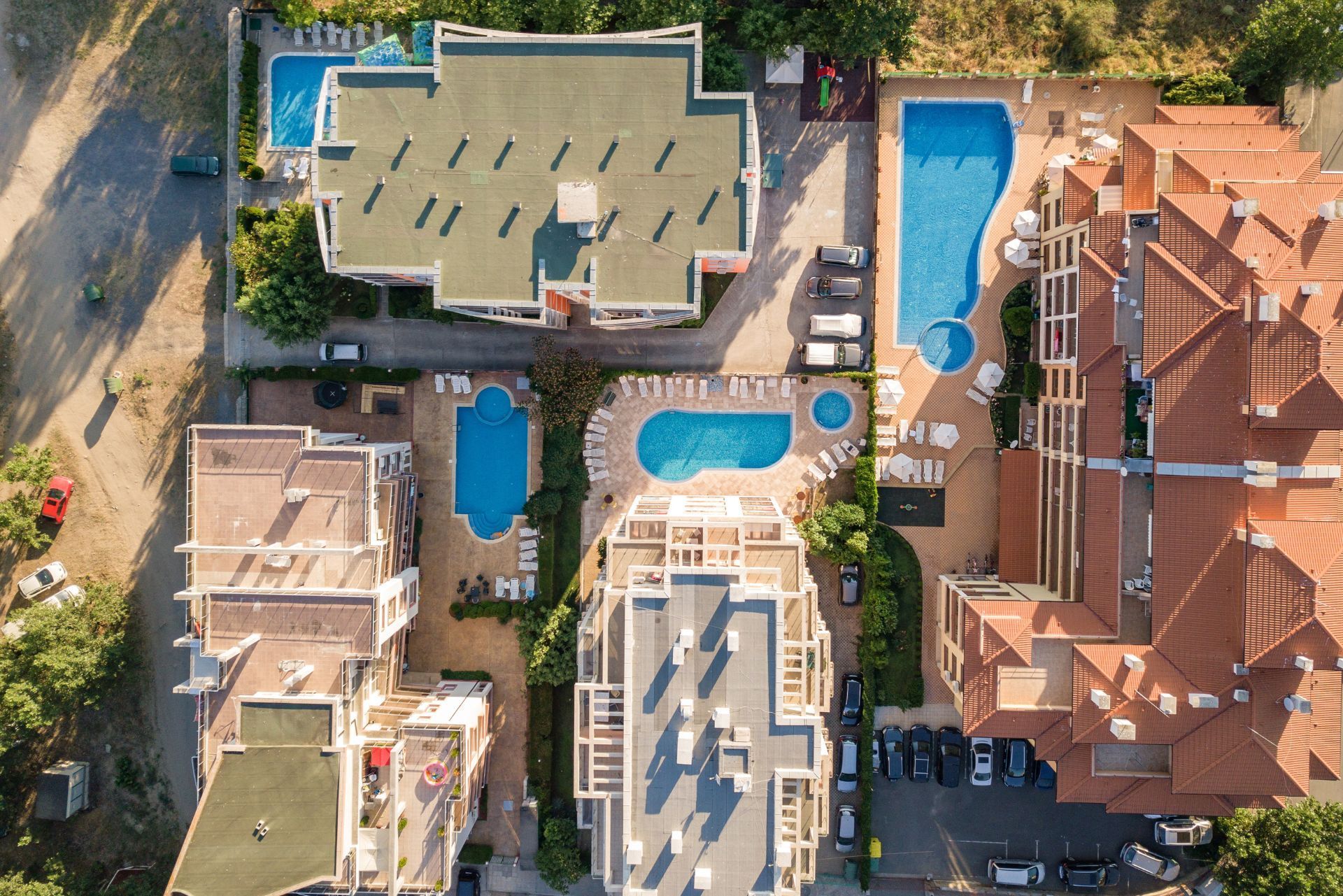
Top 3 Recommended Policies
Investing in hotels and motels in Connecticut is increasingly attractive, thanks to a recovering hospitality market and ongoing development. However, with growth comes complexity, especially in securing the right insurance coverage. This comprehensive guide explores the current landscape of Connecticut’s hotel and motel investment insurance, highlighting key market trends, challenges, and strategies to protect your investment effectively.
Connecticut’s hotel occupancy rate surged to 59.9% in 2023 from just 37.7% in 2020, signaling a robust rebound in travel and tourism. This recovery has sparked new developments, such as the opening of the 549-room Great Wolf Lodge at Foxwoods Resort Casino in May 2024, underscoring the sector’s vitality. For investors and operators, understanding the nuances of insurance within this dynamic environment is essential to managing risk and capitalizing on growth opportunities. More details on the market recovery can be found at the Hartford Business Journal.
Connecticut’s Hospitality Market: Growth and Investment Trends
The hospitality industry in Connecticut is on an upward trajectory, with projections estimating an annual growth rate of approximately 2.0% through 2030. This steady expansion is fueled by increased travel demand, new hotel developments, and a focus on boutique and historic properties, which are expected to grow even faster at 2.6% annually. Revenue per available room in this segment is anticipated to rise from $125 to $142 by 2030, reflecting strong profitability potential. The rise in revenue can be attributed to a combination of factors including a growing tourism sector, an increase in business travel, and the state’s strategic marketing efforts to promote Connecticut as a prime destination for both leisure and corporate travelers.
Investment in hotel properties remains significant. As Ginny Kozlowski, Executive Director of the Connecticut Lodging Association, notes, "Connecticut is still seeing significant investment in hotels." This confidence is reflected in projects like the Great Wolf Lodge, which not only adds substantial room inventory but also diversifies lodging options for visitors. Such developments indicate a vibrant market ripe for investors who understand the insurance landscape that accompanies this growth. Furthermore, the state is witnessing a trend towards eco-friendly and sustainable hotel practices, with many new properties incorporating green technologies and practices that appeal to environmentally conscious travelers. For further insights, see the CT Insider report on hotel investments.
Why Growth Matters for Insurance
Growth in the hospitality market increases exposure to various risks, including property damage, liability claims, and operational disruptions. As new hotels open and older properties are renovated or repurposed,
insurance policies must adapt to cover evolving risks effectively. Investors should anticipate higher premiums and more complex underwriting processes as insurers respond to the expanding market and heightened risk profiles. Additionally, the rise of digital platforms for booking and customer engagement introduces new cybersecurity risks that must be addressed through comprehensive insurance coverage. The integration of technology in hospitality not only enhances guest experiences but also necessitates a reevaluation of traditional insurance models to ensure that both physical and digital assets are adequately protected.

Understanding Insurance Challenges in Connecticut’s Hotel Sector
While Connecticut’s hotel market is flourishing, the insurance environment presents notable challenges. According to Daniel Fink, an insurance agent and expert witness, "The hotel insurance market is in turmoil. I know some hotels have paid five times more premium this year than last year." This surge in insurance costs reflects broader market instability and increasing difficulty in securing comprehensive coverage at reasonable rates.
Several factors contribute to this turmoil, including rising claims related to property damage, liability risks, and the complexities of insuring mixed-use developments. Additionally, the hospitality industry’s exposure to natural disasters, cyber threats, and evolving regulatory requirements further complicates insurance procurement. For instance, the increase in severe weather events, such as hurricanes and floods, has led to a spike in claims, prompting insurers to reassess their risk models and adjust premiums accordingly. Furthermore, the rise of cyber incidents, particularly in the wake of the pandemic, has heightened the need for robust cyber liability insurance, which can be challenging to obtain at a reasonable cost.
Investors must navigate these challenges carefully, balancing adequate coverage with cost control. Engaging specialized insurance brokers familiar with the Connecticut market can help identify tailored solutions that mitigate risks without excessive premiums. More on these challenges can be found in the Independent Agent article on hotel insurance difficulties.
The Role of Captive Insurance in Risk Management
One innovative approach gaining traction in Connecticut is the use of captive insurance companies. The state’s captive insurance industry has grown dramatically, expanding from a single captive in 2012 to 78 in-house insurers by the end of 2023. This growth offers hotel investors an alternative means of managing risk by creating their own insurance entities, which can provide more control over coverage terms and costs. Captives can be particularly advantageous for hotels that face unique risks not adequately covered by traditional insurance policies, allowing them to customize their coverage to fit specific operational needs.
Captive insurance allows hotel operators to tailor policies specifically to their risk profiles, potentially reducing reliance on volatile commercial insurance markets. However, establishing and maintaining a captive requires significant expertise and capital, making it a strategic option primarily for larger hotel portfolios or groups. The process involves navigating regulatory frameworks and ensuring compliance with state laws, which can be intricate. Additionally, the financial benefits of captives, such as potential tax advantages and the ability to retain underwriting profits, can make this approach appealing for those with the resources to manage it. For more details on Connecticut’s captive insurance growth, see the
CT Insider coverage.
Key Insurance Coverage Types for Connecticut Hotels and Motels
Understanding the essential insurance coverages is critical for protecting hotel investments in Connecticut. The following outlines the primary types of insurance policies that hotel and motel owners should consider:
Property Insurance
Property insurance covers physical damage to hotel buildings, equipment, and inventory caused by fire, storms, vandalism, or other perils. Given Connecticut’s variable weather and aging hotel infrastructure, this coverage is fundamental. The recent surge in hotel developments, such as the Great Wolf Lodge, highlights the importance of insuring new assets adequately. Additionally, property insurance can extend to cover loss of income due to property damage, ensuring that hotel owners are not left financially vulnerable while repairs are made. Regular assessments of property value and coverage limits are essential to ensure that the policy remains aligned with the current market conditions and the evolving needs of the business.
Liability Insurance
Hotels face significant liability risks, including guest injuries, slip-and-fall accidents, and foodborne illnesses. Liability insurance protects against claims arising from such incidents, safeguarding the hotel’s financial stability. With increasing occupancy rates reaching nearly 60% in 2023, the likelihood of liability claims rises, making this coverage indispensable. Furthermore, hotels often host events and gatherings, which can introduce additional liability exposures. Therefore, it is crucial for hotel owners to consider endorsements or additional coverage options that address specific risks associated with hosting large groups, such as event cancellation insurance or liquor liability coverage, to further mitigate potential financial losses.
Business Interruption Insurance
This coverage compensates for lost income if a hotel must close temporarily due to a covered peril, such as fire or severe weather. Given the hospitality market’s growth and the investment in new properties, business interruption insurance helps maintain cash flow during unexpected shutdowns. It is also essential for hotel owners to understand the waiting period associated with this coverage, as it can vary significantly between policies. Additionally, some insurers offer extended business interruption coverage, which can provide financial support for a more extended period, ensuring that hotels can recover and rebuild without facing immediate financial strain.
Cyber Liability Insurance
Hotels collect vast amounts of guest data, making them prime targets for cyberattacks. Cyber liability insurance covers losses related to data breaches, ransomware, and other cyber incidents. As the industry modernizes with digital booking and payment systems, this coverage is increasingly vital. Moreover, the rise of remote work and mobile technology has led to an increase in vulnerabilities, making it essential for hotel owners to implement robust cybersecurity measures alongside their insurance policies. Training staff on data protection practices and regularly updating software can help mitigate risks, but having a solid cyber liability policy in place ensures that hotels are prepared to respond effectively to any incidents that may occur, minimizing damage to both reputation and finances.
Strategies for Securing Optimal Insurance Coverage
Given the complexities and rising costs in the hotel insurance market, investors and operators should adopt strategic approaches to secure the best possible coverage. Here are some practical tips:
Work with Specialized Brokers
Insurance brokers who specialize in hospitality understand the unique risks and market conditions in Connecticut. They can negotiate better terms and identify coverage options that general brokers might overlook. Their expertise is invaluable in navigating the current market turmoil and premium increases. Moreover, specialized brokers often have established relationships with insurers, which can lead to more favorable negotiations and tailored solutions that align with the specific needs of hotel operators.
Invest in Risk Management
Proactive risk management can reduce insurance premiums and claims. Implementing rigorous safety protocols, regular property maintenance, and staff training minimizes incidents that lead to claims. Insurers often reward well-managed properties with more favorable rates. Additionally, investing in technology such as surveillance systems and smart building automation can enhance security and operational efficiency, further mitigating risks and demonstrating to insurers a commitment to safety and sustainability.
Consider Captive Insurance Solutions
For larger hotel operators, exploring captive insurance options can provide cost savings and customized coverage. Connecticut’s expanding captive insurance sector offers a supportive regulatory environment for such arrangements. Captives allow hotel companies to retain more risk and tailor policies specifically to their operational needs, which can lead to significant long-term savings and improved cash flow management. Furthermore, as the hospitality industry evolves, captives can adapt more readily to emerging risks, ensuring that coverage remains relevant and effective.
Review and Update Policies Regularly
As the market evolves and new developments occur, insurance needs change. Regular policy reviews ensure coverage remains adequate and cost-effective, especially with ongoing growth in boutique and historic hotel segments where revenue per available room is expected to increase substantially. Engaging in annual reviews not only helps in identifying gaps in coverage but also provides an opportunity to reassess the value of assets and the potential for new risks, such as cyber threats or natural disasters, which have become increasingly relevant in today’s landscape. By staying proactive, hotel operators can ensure they are not only compliant but also strategically positioned to handle unforeseen challenges.

Conclusion: Navigating Connecticut’s Hotel Insurance Landscape
Connecticut’s hotel and motel investment landscape is vibrant and growing, buoyed by rising occupancy rates, new developments like the Great Wolf Lodge, and steady market expansion projected through 2030. However, investors must carefully navigate the increasingly complex and costly insurance market to protect their assets effectively.
Understanding the unique risks faced by hotels, leveraging specialized insurance expertise, and exploring innovative risk management tools such as captive insurance are essential strategies. By staying informed and proactive, hotel investors in Connecticut can safeguard their investments while capitalizing on the promising growth of the state’s hospitality sector.
For ongoing updates on Connecticut’s hospitality market and insurance trends, the
New England Real Estate Journal offers valuable insights and technical appraisals relevant to investors and operators.
Contact Us
Phone
Locations
Connecticut Location
703 Hebron Ave., 3rd Floor, Glastonbury, CT 06033
North Carolina Location
436 East 36th St., Charlotte, NC 28205


